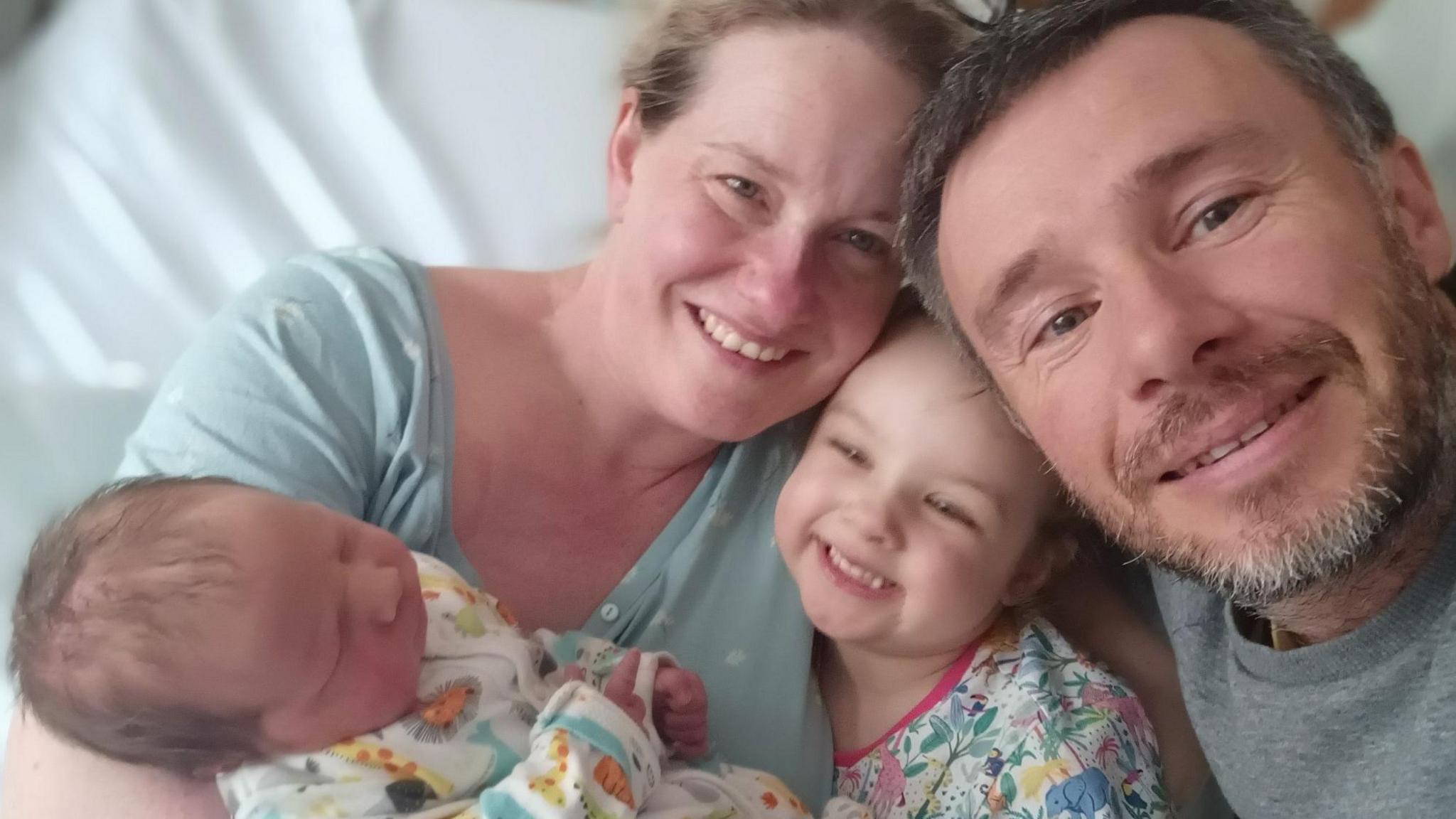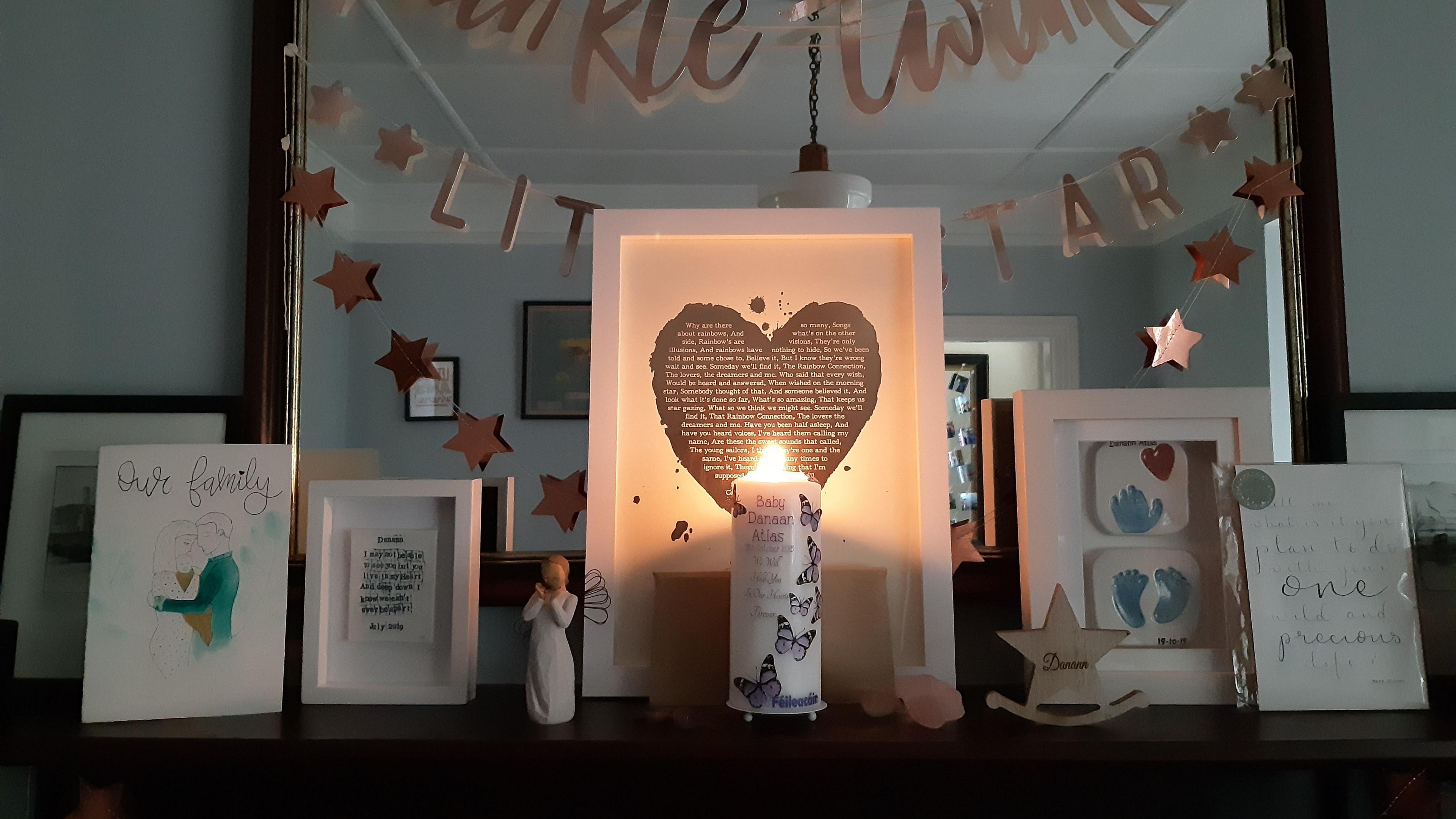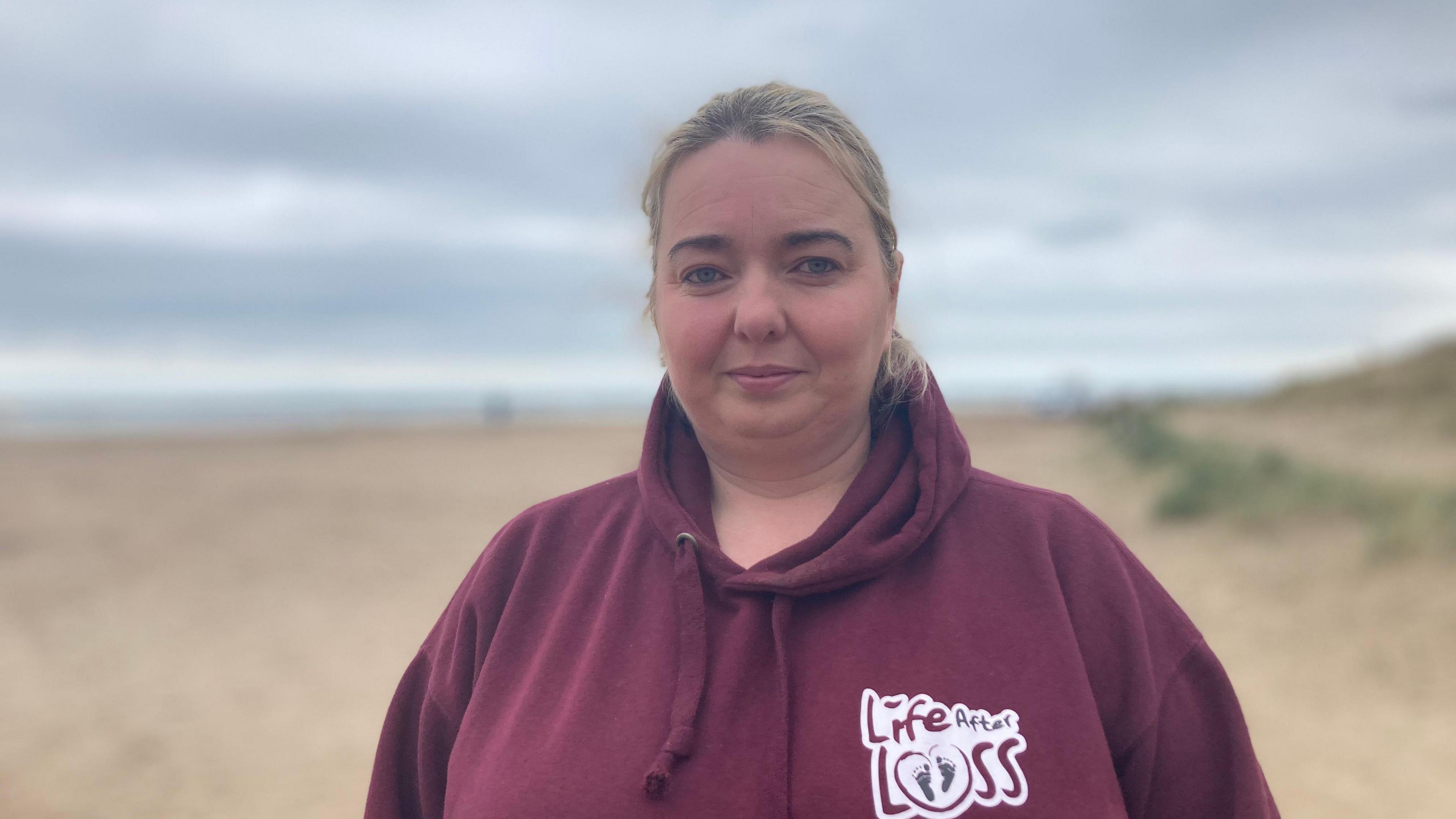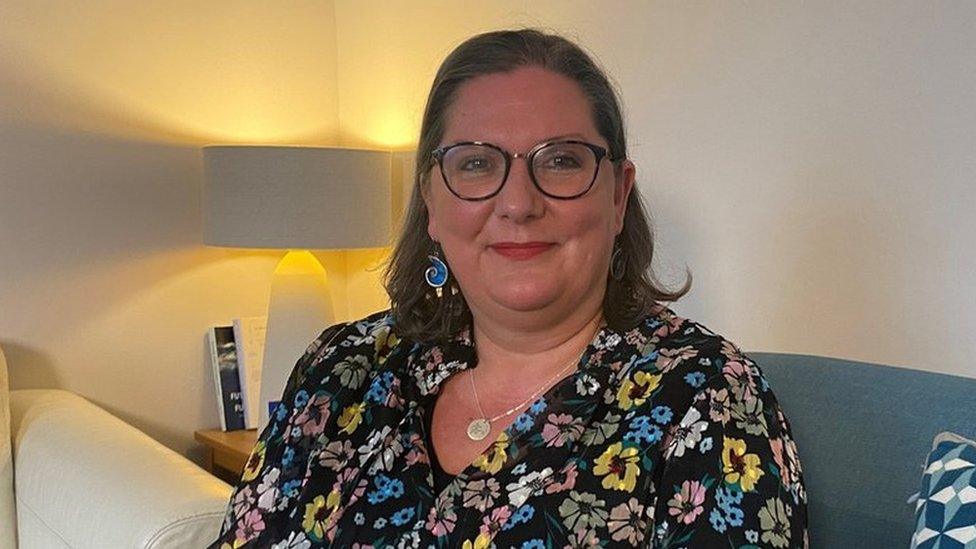Parents say public record means son will not be forgotten

Danny Riordan and Maria Moynihan's first child was stillborn in October 2019
- Published
"When you speak to bereaved parents, one of the things they fear most is that their child will be forgotten."
Maria Moynihan from County Kerry was among some of the first parents in the Republic of Ireland to use a new facility that publicly memorialises stillborn babies.
Her eldest child, Danann, should have celebrated his fifth birthday this weekend.
But 38 weeks into her first pregnancy, her beloved son was stillborn in a County Cork hospital on 19 October 2019.
Danann's death had been expected - he had been diagnosed with Edwards' syndrome, external during a 20-week pregnancy scan.
The condition is a chromosomal disorder which usually leads to death in the womb or very shortly after birth.
Maria and her husband Danny were able to spend a few precious days cuddling his tiny body and saying goodbye, but they had little time to make memories with him.
Five years on, the couple have since celebrated the arrival of two healthy children - daughter Fallon and their newborn baby son Caoilte.
But thoughts of the boy they lost are never far from Maria's mind and she says ensuring Danann's memory is kept alive is her way of continuing to parent him.
"For me it’s nearly impossible for me to say I’ve two children. I mean I don’t – I have three," she said.
"Danann lives when we speak of him. He’s very much a presence in our house and in our family and his brother and sister are growing up knowing about him.
"He is the cornerstone of our family, he’s so important in our story."

Maria, Danny, their three-year-old daughter Fallon and their newborn son Caoilte
When the Irish government launched its new Record of Stillbirths, external on 16 September, Maria immediately felt the need to add Danann's name to the list.
The searchable database was introduced after years of campaigning by baby loss charities to provide a permanent public record for those bereaved by stillbirth.
"For those of us who wish to have our babies’ lives acknowledged and recognised – just because their lives were very short doesn’t mean that they’re not as important," Maria insisted.
Prior to the launch, parents had the option of privately recording their loss in the existing Register of Stillbirths but that was - and still is - a closed facility that can only be viewed by family members.
Maria had already added Danann to the private register in 2019, but she felt it was essential that his existence was also publicly documented by the state.
"Until recently, if someone down the line was to go researching our family tree, they’d find myself, Danny, Fallon and Caoilte but there would be no public record of Danann," she explained.
"That kind of I suppose speaks of a time to me when stillbirth was shrouded in stigma and shame and that’s not how we or most people I think today feel about our babies who are stillborn.
"They are so part of our families and it’s so important to have them acknowledged, to have them equal to their siblings – because they are equal."
Allow X content?
This article contains content provided by X. We ask for your permission before anything is loaded, as they may be using cookies and other technologies. You may want to read X’s cookie policy, external and privacy policy, external before accepting. To view this content choose ‘accept and continue’.
How is baby loss marked elsewhere?
In recent years much of the secrecy that once surrounded stillbirth and miscarriage has dissipated as more parents like Maria choose to speak out about baby loss.
Those changing attitudes are also being reflected in the ways baby loss is officially recorded by state authorities across the UK and Ireland.
But the current rules vary significantly between different jurisdictions.
In the UK all stillbirths which happen after the 24th week of a pregnancy must be registered by law.
In England and Wales, external, parents are advised that they should register a stillbirth within 42 days, but in Scotland stillbirths must be registered within 21 days, external.
In Northern Ireland, external parents are given a full year to complete the registration
Across the border in the Republic of Ireland it is a matter of parental choice.
There has been a system in place to register Irish stillbirths since 1995 but it is not mandatory for parents to document their loss.
There is also significant divergence in how miscarriages are reported - that is the loss of a baby before the 24th week of pregnancy in the UK, or 23rd week in Ireland.
Late last year, the Scottish government launched a national commemorative record called the Memorial Book of Pregnancy and Baby Loss, external.
Parents in Scotland can choose to add the names of miscarried babies into the book and they will be issued with a free commemorative certificate of the entry.
Since it opened for applications on 4 October 2023, a total of 1,493 entries have been made in the book, according to National Records Scotland.
In England, baby loss certificates were introduced in February this year for parents who lose a child under 24 weeks gestation.
Devolved administrations in Northern Ireland and Wales are also considering bringing in certificates to record miscarriages in the near future.
Earlier this month Stormont's finance minister said she was "committed to implementing a Baby Loss Certificate Scheme" , external and planned to introduce legislation, but she did not set out a timetable.

Mementos of Danann, including casts of his hand and feet, are displayed in Maria's home
The Irish government has not announced any plans to record or commemorate miscarriages, but Maria said that is something she would welcome.
"I don’t think there’s much difference between my experience and somebody who births a baby at 20, 21, 22 weeks," she said.
After posting about the new Record of Stillbirths on social media, she was contacted by a mother whose son was stillborn at 20 weeks.
"Unfortunately 20 weeks doesn’t fit stillborn criteria," Maria explained.
"But that mother still had to go through birth. That baby was made and loved and grieved as much as my son.
"Their life mattered too to their family, so I really do think something like a baby loss certificate is a really compassionate thing to introduce to people who want it."
Related topics
- Published6 April 2024

- Published22 February 2024

- Published3 April 2023
